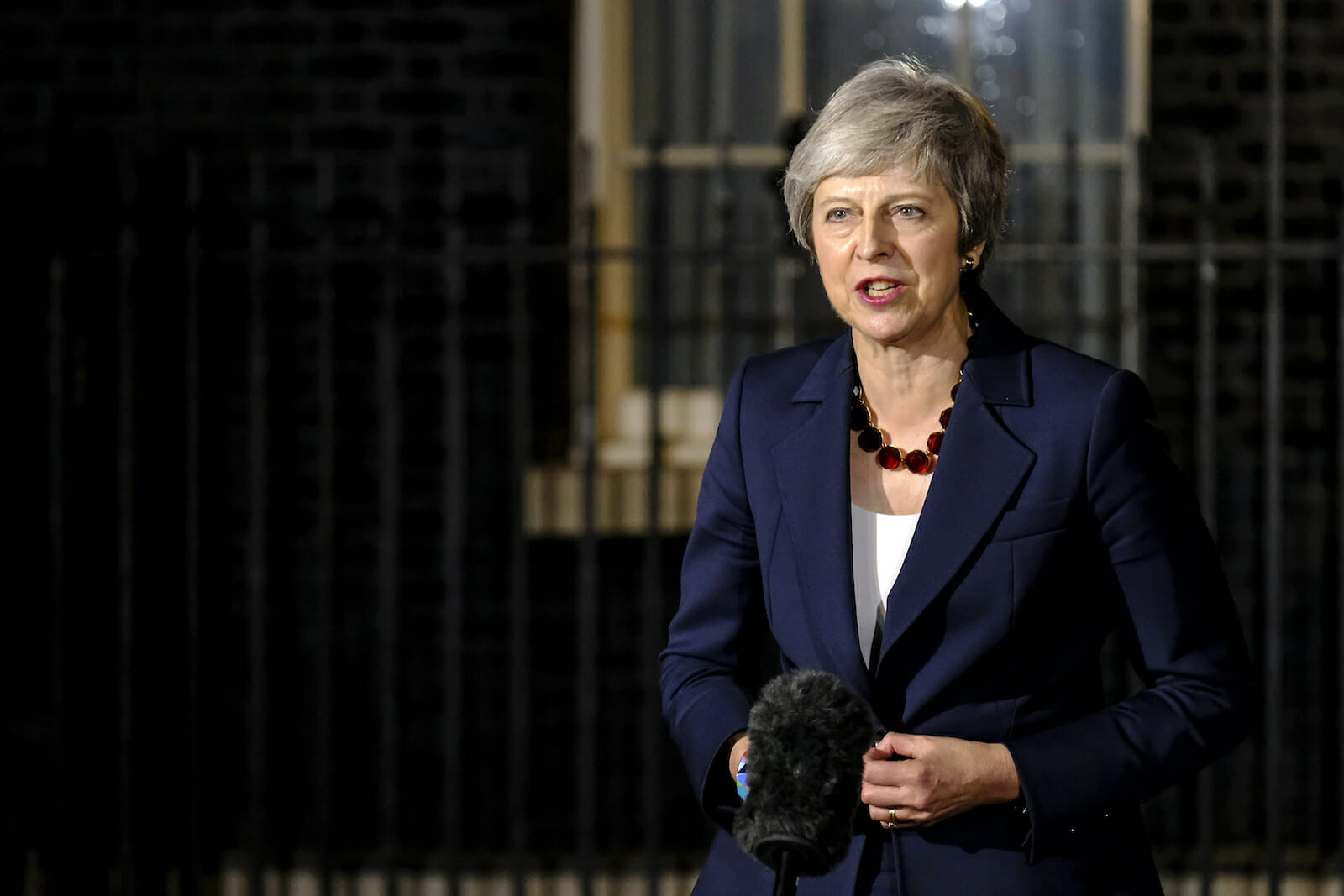
Theresa May’s Spin of her Brexit Plan is Dishonest
Theresa May’s promises for her draft Brexit agreement this week are blatantly false – as false as her spin of the proposal that she foisted on the Cabinet at Chequers in July. She’s relying on popular ignorance and impatience, and journalistic connivance, to get her lies into the popular consensus.
First, let’s start with her claim that this is the best deal possible. She is spinning a false choice between her proposal and “no deal.” In fact, her proposal is mostly of the EU’s development, and she started preparations for “no deal” just months ago.
She frittered away the first 18 months after the referendum in June 2016 with no proposals at all. Infamously, she was asked what she wanted from the German premier (Angela Merkel) in a private meeting (which Merkel herself leaked, with amusement), to which May replied, “What do you want?”
In December 2017, ahead of a nominal deadline invented by the EU negotiators themselves, they suddenly suggested, without legal justification, that she should commit a separation fee just to start negotiations. (The amount was informally agreed at about £40 billion.) In the early hours of the morning, she flew to Brussels to sign away this money on various vague promises that remain disputed by the British, Irish, and EU governments.
Her first Cabinet meeting on Brexit policy came later that month – exactly 18 months since the referendum. The Cabinet did not agree to anything. She retained personal control, except to delegate to a favoured civil servant with no formal expertise (Olly Robbins).
She excluded her own Brexit Secretary (David Davis), who was as ignorant of her plan as the rest of Cabinet at Chequers in July – more than two years since the referendum. His successor (Dominic Raab) resigned this week. She cannot find a replacement. She asked Michael Gove, who demanded to restart negotiations, which she refused.
On Thursday, Hancock and May kept to their line that nobody has come up with a better plan, but they are denying the alternatives. David Davis’ department came up with a plan that she never admitted at Chequers. The Institute for Economic Affairs (just to mention one think-tank) has published several iterations. Private authors have published several: the one I recommend was first published in September 2017, and is now in its second edition. Her own party’s European Research Group offered a proposal that she refused to receive.
Without alternatives, she has danced to the EU’s tune – worst, by indulging the EU’s demand to effectively separate the province of Northern Ireland from the rest of Brexit. She wanted to appear defiant in defense of the British union, then claim that the EU had conceded to her. In fact, the EU had no legal or material justification in the first place. Northern Ireland and Eire did not have a hard border before the EU, and they don’t need one after Brexit, any more than Norway needs one with Denmark, or England needs one with France.
Her proposal isn’t the best deal – it’s the corner into which she has painted herself. The only solution is to repudiate her commitments (none of which are treatied anyway), withdraw under World Trade Organization rules – which govern almost all British trade outside the EU already, and force the EU to restore what is mutually beneficial rather than selfish.
She and fellow “remainers” have always characterized “no deal” as a “cliff edge,” akin to a sudden stop in European trade. During the stormy Cabinet meeting on Wednesday, her loyal Health Secretary (Matt Hancock) suggested that people would die for want of imported medicines. May herself threatened Cabinet with a general election that the opposition would win.
In her statement to Parliament on Thursday, she predictably claimed to have won “a number of concessions,” but these turn out to be vague aspirations that should be implicit in any deal, such as “best endeavours.”
She claimed her proposal “takes back control of our borders, laws, and money,” but she is continuing the customs union, which subjects the flows at our borders to EU legislation and jurisdiction, with an annual membership fee – currently about £15 billion after rebates.
She also wants continuance with various sectors of EU law, effectively acquiescing in the opposition’s false claim that leaving the EU would necessarily damage environmental and labour protections.
If you accept EU laws or regulations, you accept the jurisdiction of the European Court of Justice, but she keeps promising to take Britain out of the European Court of Justice.
She promised also that Britain “will be leaving the Common Agricultural Policy and the Common Fisheries Policy,” but her continuance of the customs union includes agri-foods, and she had agreed long ago that the EU would have the same rights to plunder British fisheries as it does now.
In her statement yesterday, she claimed that her proposal “protects jobs, security, and the integrity of the United Kingdom,” but she has ignored Britain’s opportunities in the rest of the world. The EU is shrinking as a share of British trade. Its structural distortions and fake solutions guarantee deeper economic crises than the last Eurozone crisis. EU over-regulation and protectionism discriminate against the larger part of the world.
She unnecessarily procrastinated on starting free trade negotiations with the rest of the world until this year (the Foreign Office is still trying to hire negotiators). By 2018, these negotiations became pointless, because she committed to keep Britain in the customs union, which means Britain can have no trade agreements that are not compliant with the EU. She mischaracterizes her draft agreement as a “free trade deal” – in fact, she is extending a customs union that prevents free trade deals.
As for military security, she has failed to specify to Parliament her government’s furtive commitments to the EU’s ever closer defence union, which aim, as Angela Merkel repeated this week, towards a single European military force and a centralized defence economy. In May’s statement yesterday, she admitted she had “agreed a close and flexible partnership on foreign, security, and defence policy,” then concluded contradictorily that her plan “delivers an independent foreign and defence policy.”
Finally, May offers this draft agreement as an interim agreement, with the false promise that Britain will be leaving the EU in March 2019, but nothing practical will change then. She talks airily about the interim period ending in 2020, but that is another impossible aspiration. She has wasted two-and-a-half years already.
In any case, her agreement does not allow Britain to decide when to leave. She is subordinating Britain to a mistermed “independent panel” of EU representatives and British civil servants (who have proved too aimless, inexpert, or pro-EU to serve Brexit). In any case, May wants her interim agreement to be the “basis” for a permanent agreement.
In other words, May’s government is only nominally and rhetorically leaving the customs union, defence union, Common Agricultural Policy, Common Fisheries Policy, European Court of Justice, and EU membership fees. May’s government is making the wrong choice for British jobs and security. Her government is not delivering Brexit. Her government will not be sovereign. Anybody who tells you otherwise is regurgitating her spin.

